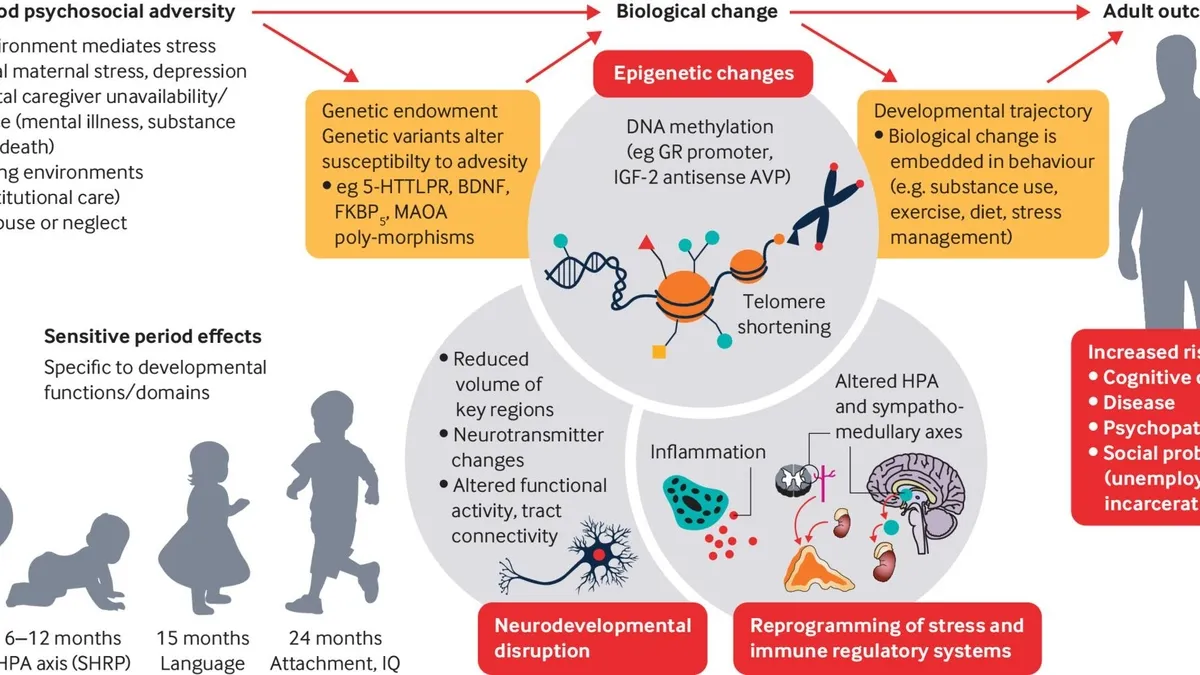A groundbreaking study led by Dr. SangNam Ahn, an associate professor at Saint Louis University, delves into the intricate connection between childhood and adult adversity, shedding light on their profound effects on psychiatric and cognitive decline.
The research suggests that facing adversity during childhood may heighten the susceptibility to mental illness in adulthood. Similarly, encountering challenges as an adult could increase the likelihood of both mental illness and cognitive decline in later stages of life.
Dr. Ahn emphasizes the complexity of life and underscores the importance of examining the enduring health effects of adversity throughout life, encompassing physical health, psychiatric well-being, and cognitive health. This comprehensive study stands out as one of the first to explore these issues comprehensively.
Drawing on data from over 3,500 individuals across a 24-year period, Ahn’s team utilized longitudinal data to investigate the impact of persistent traumatic incidents throughout life. Childhood adversity included financial difficulties, parental unemployment, legal troubles, school-related challenges, physical abuse, and parental drug addiction. Adult adversity covered events such as loss, natural disasters, conflicts, substance abuse, physical attacks, illness in the family, reliance on government assistance, and unemployment.
Both childhood and adulthood adversity were correlated with increased risks of anxiety, depression, and cognitive decline in later life. Surprisingly, the study revealed that lower levels of adversity correlated with higher levels of education, challenging preconceptions.
Initially, childhood adversity showed a robust connection with cognitive decline. However, when education was factored in, this correlation vanished, indicating that education might equip individuals with better coping mechanisms, reducing reliance on unhealthy habits.
The study underscores the pivotal role of education in health outcomes, linking it to improved employment opportunities, higher income, safer living environments, regular physical activity, and healthier dietary habits—protective measures against the highlighted adversities.
Dr. Ahn advocates for open discussions about stress between clinicians and individuals, enhancing overall health understanding. Stress discussions, both in clinical settings and everyday conversations, can potentially mitigate the long-term effects of adversity. Dr. Ahn stresses the need for proactive stress management, encouraging attention to stress in various life settings to empower individuals in effectively coping with life’s challenges.



